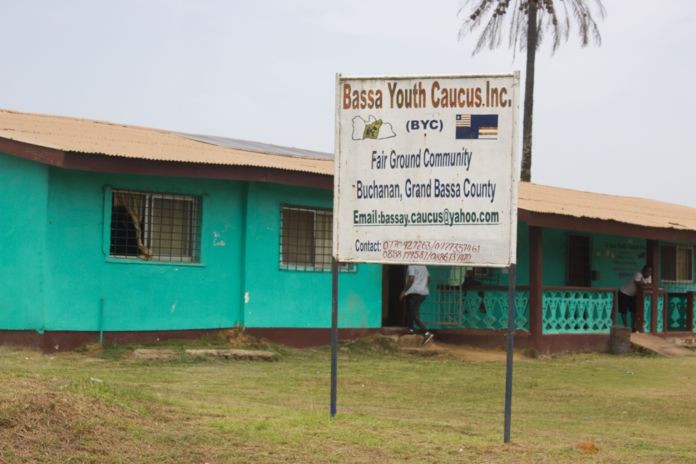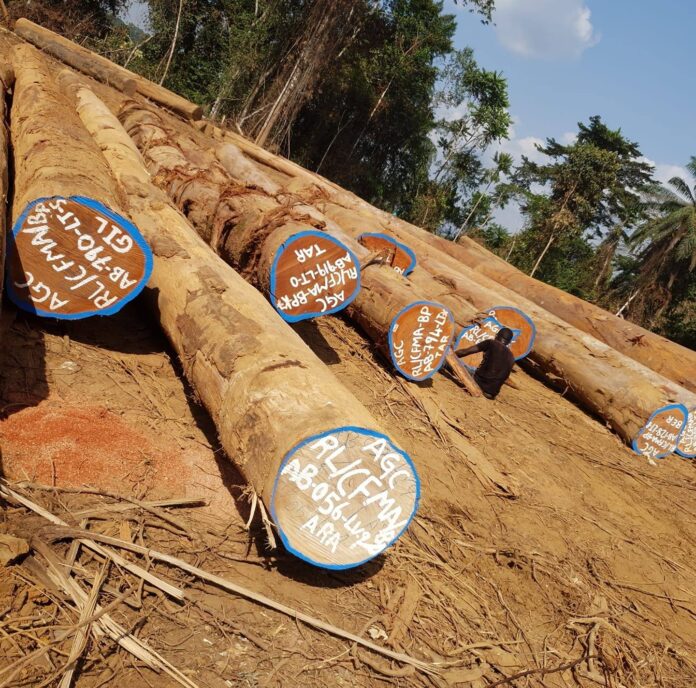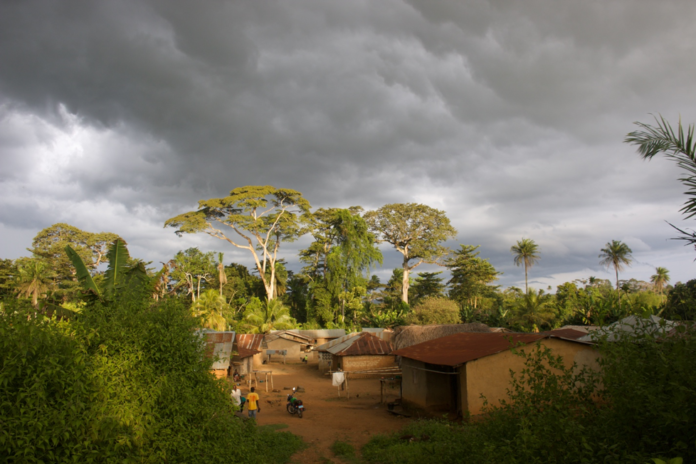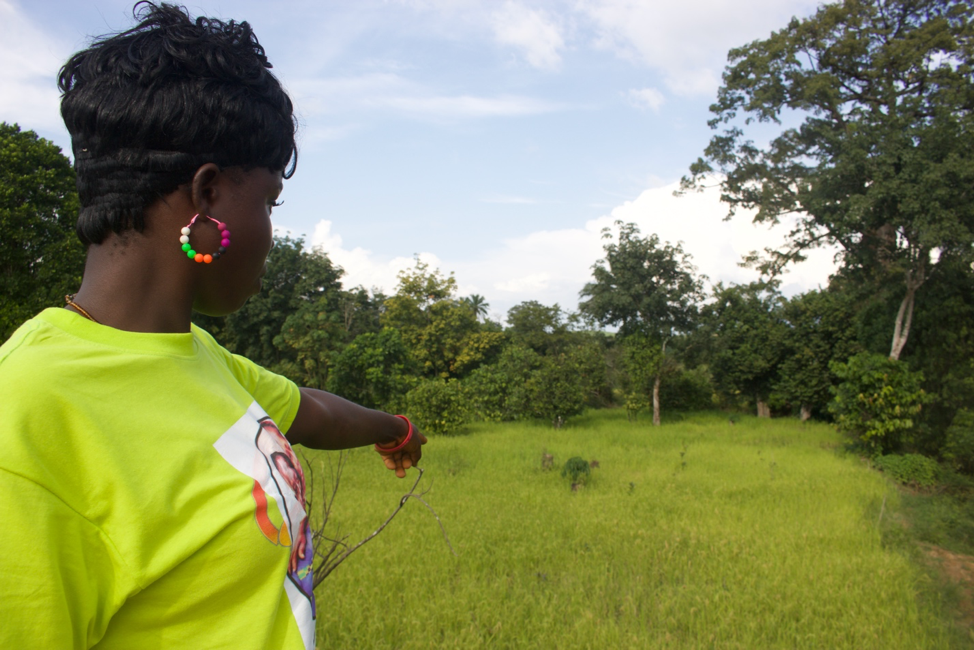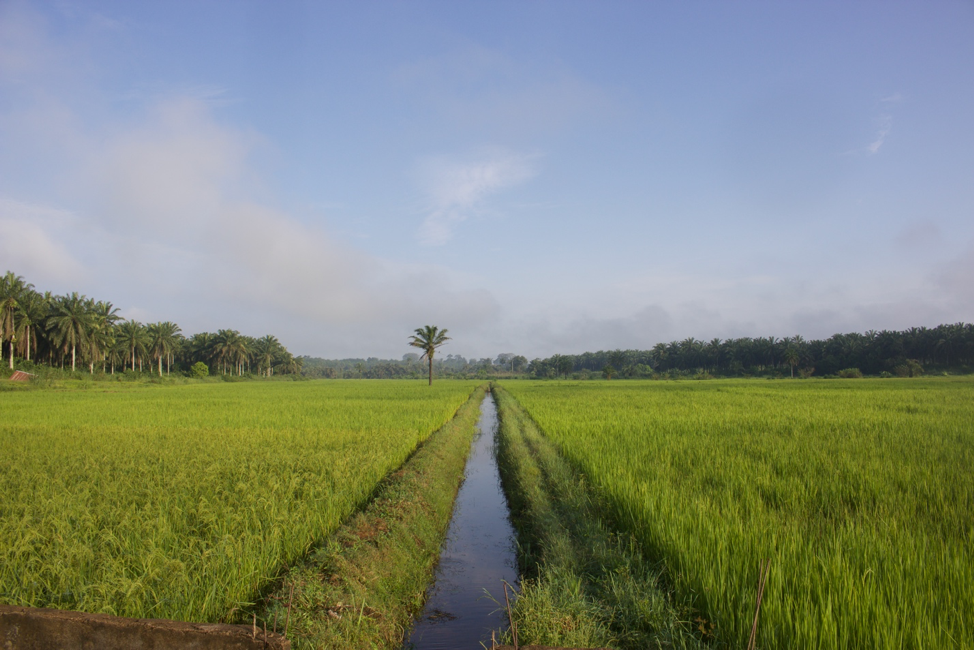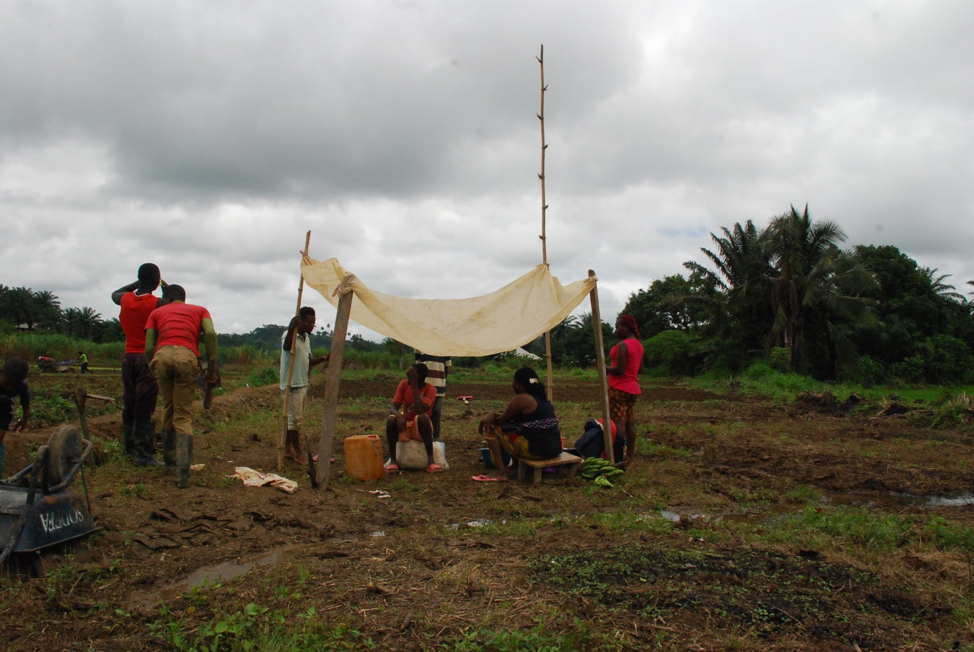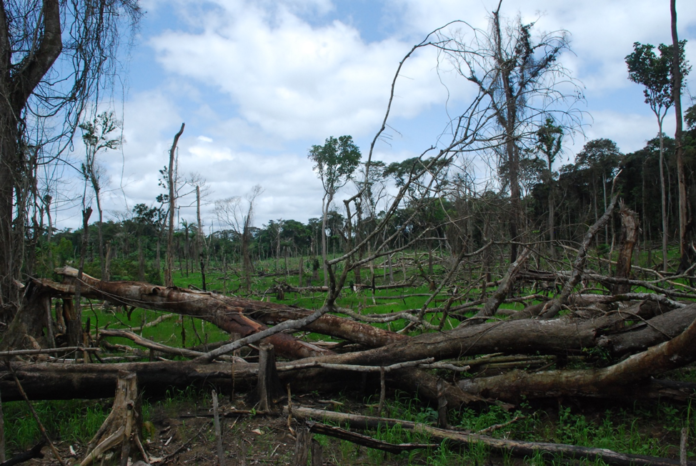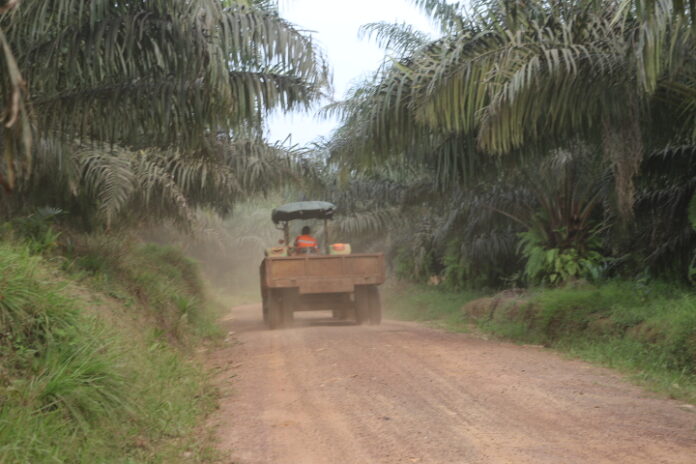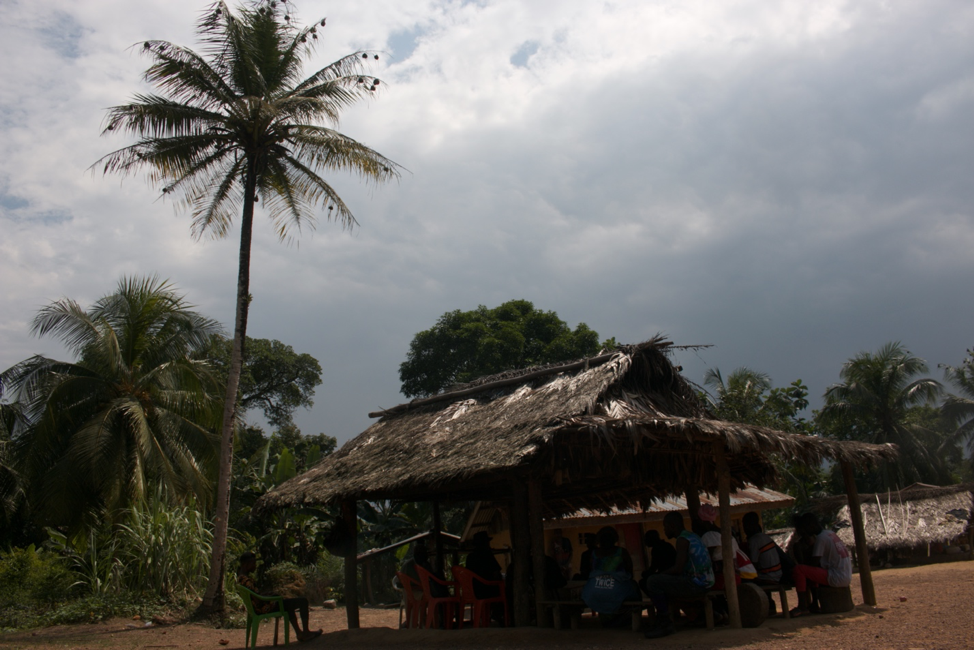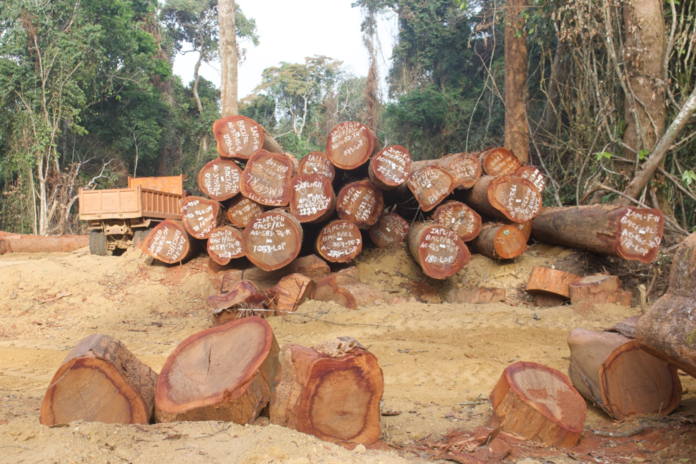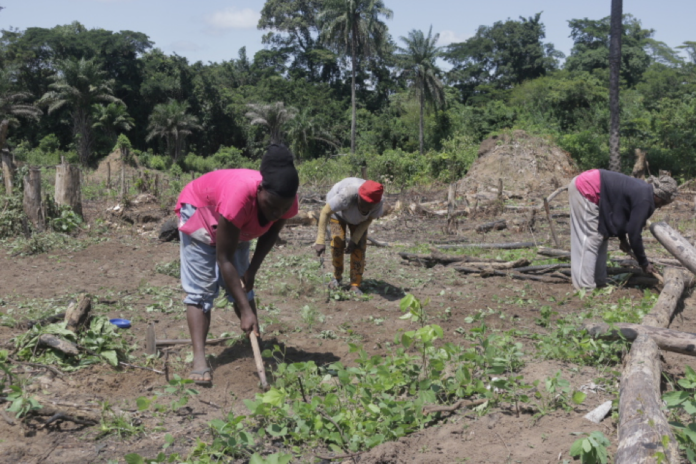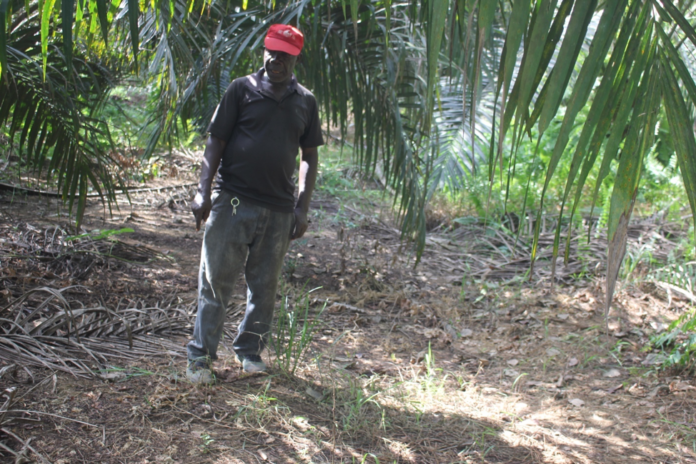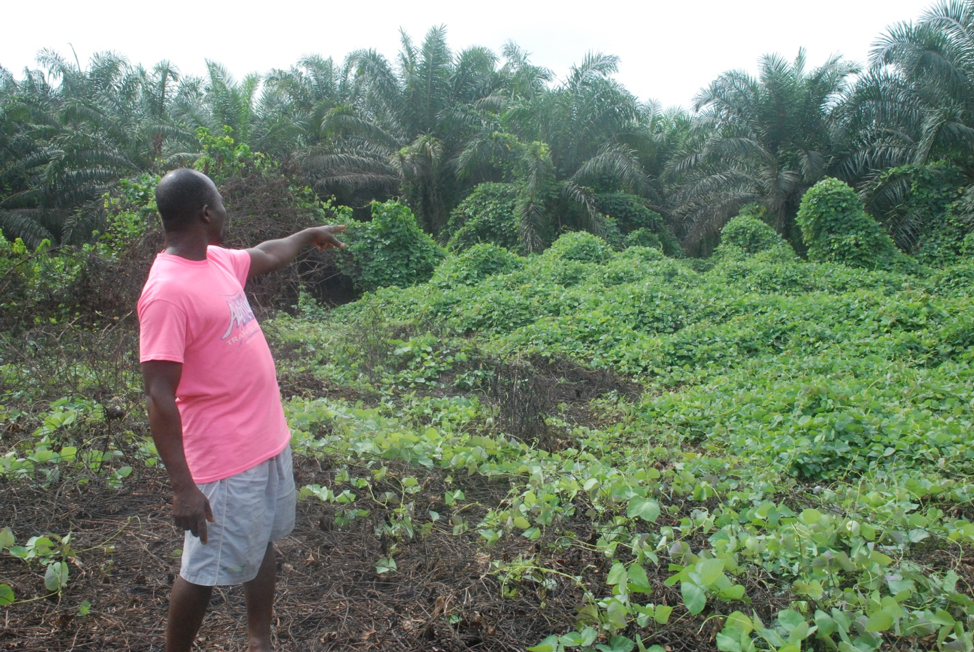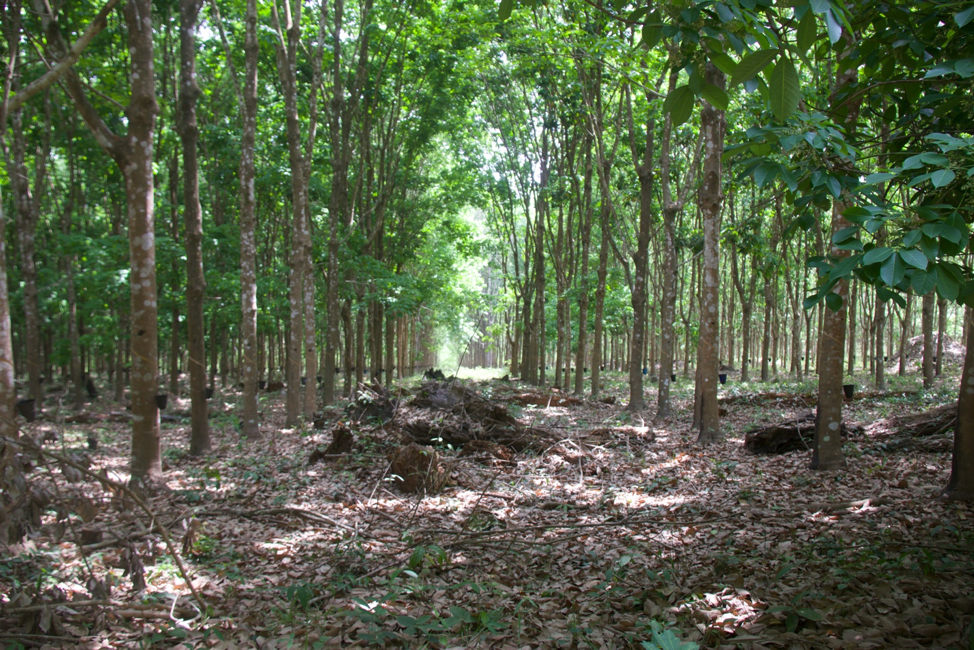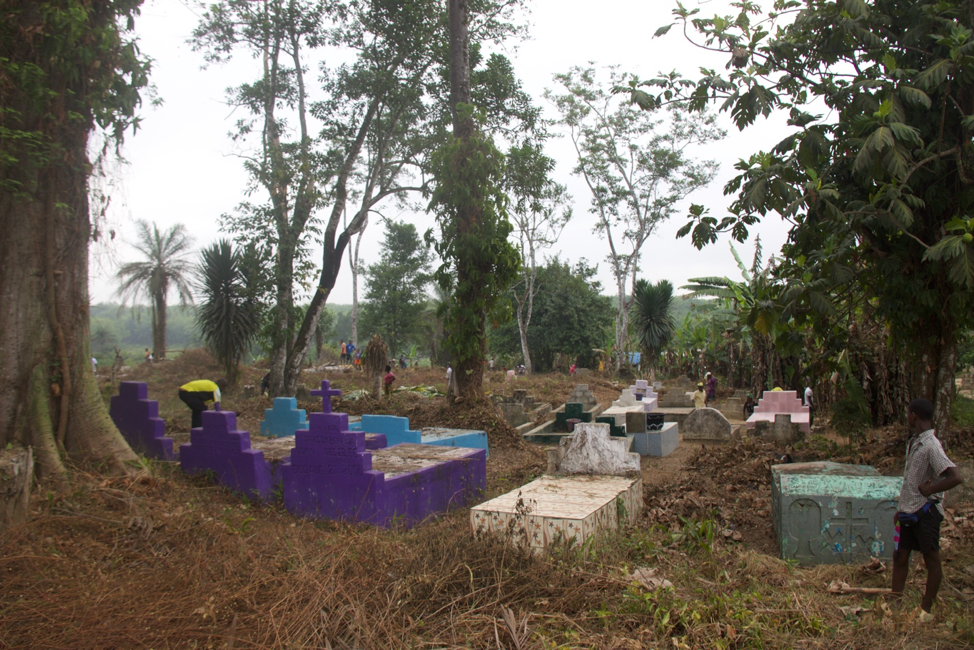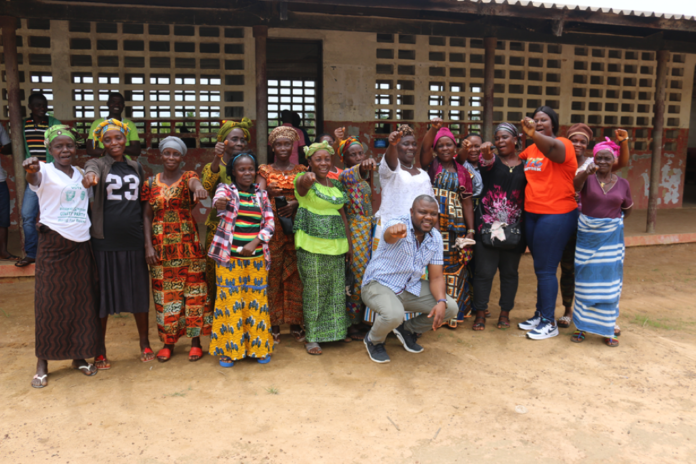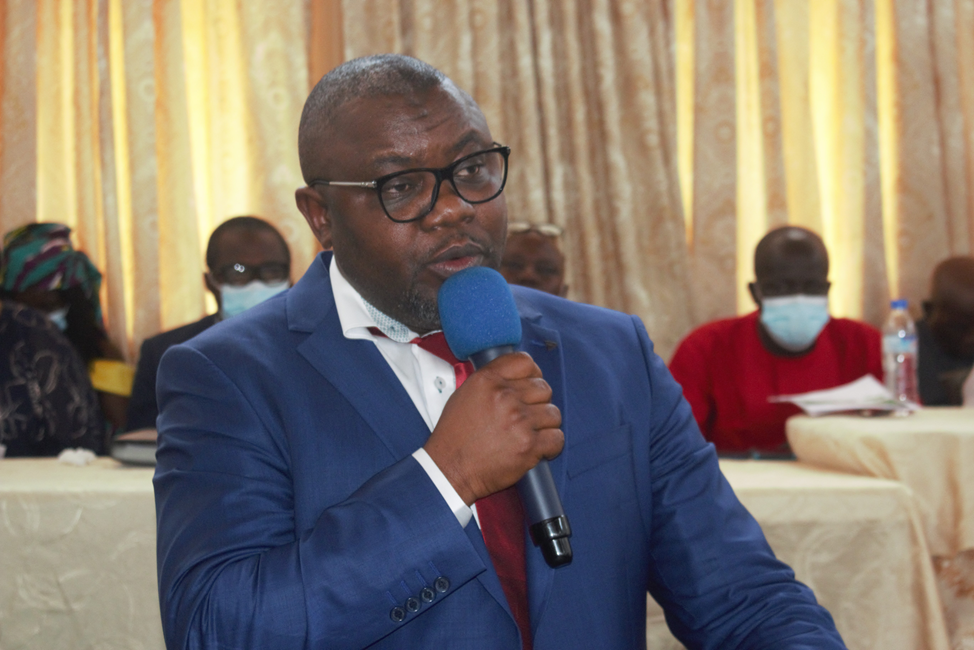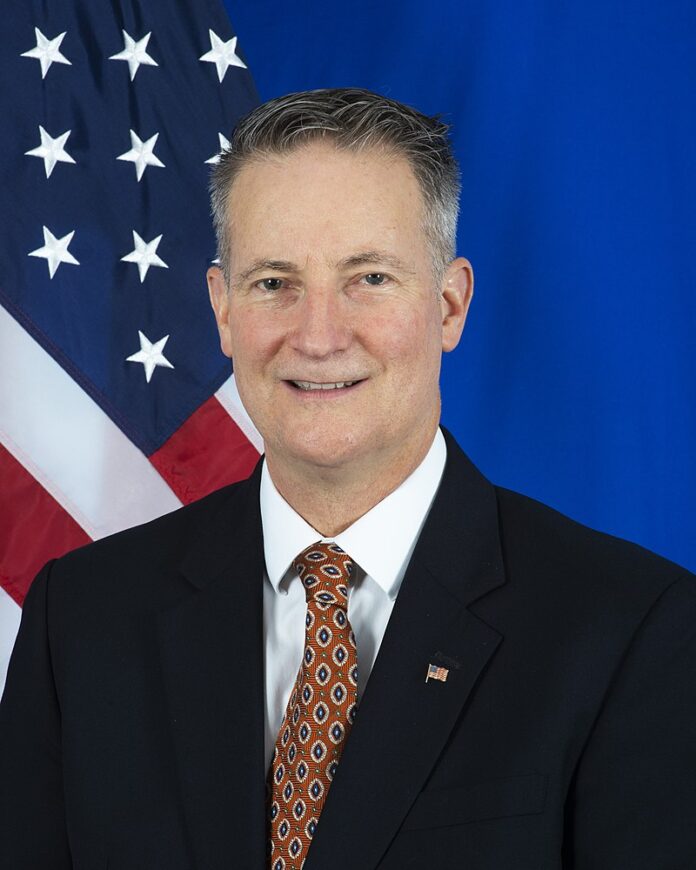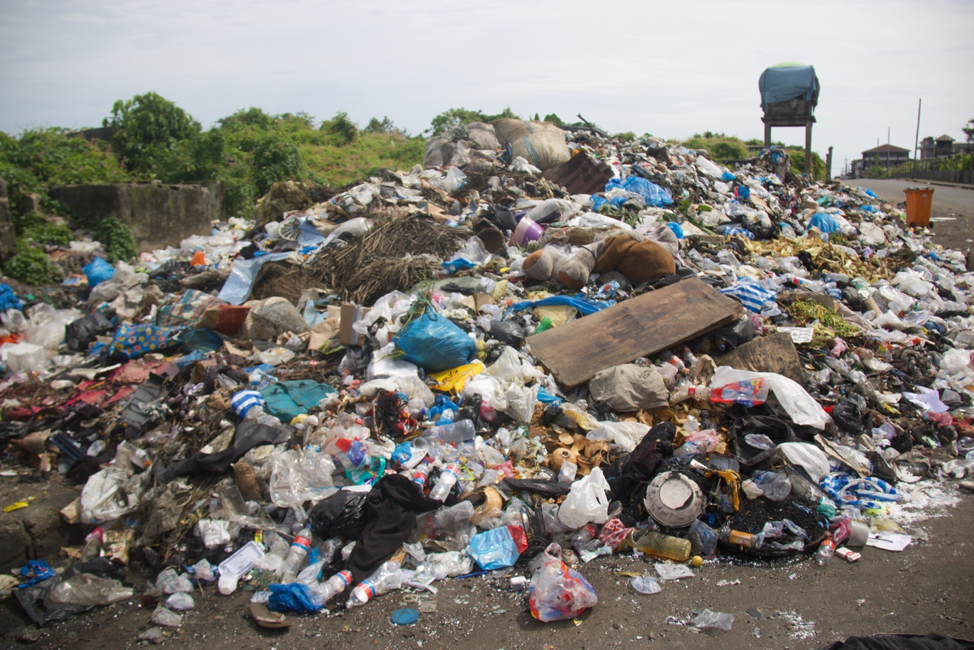Top: The headquarters of the Bassa Youth Congress (BYC) in Buchanan, Grand Bassa County. The DayLight/Varney Kamara
By Varney Kamara
BUCHANAN, Grand Bassa County – In 2014, the Bassa Youth Caucus (BYC) sacked Mathew Bryant, its president, for misapplying a portion of its share of the county social development fund. Bryant had suggested the US$300 be spent on a toilet project but the executive council, which approves projects for the group, did not sanction it.
“I agree that, constitutionally, my decision should have been approved, Bryant, 33, says in an interview with The DayLight, adding he was “shocked” when he learned about his. “I was attending another function in Monrovia when the guys announced my expulsion.”
Established in 2006 for local development initiatives nationwide, the County Social Development Fund (CSDF) has been marred by corruption, mismanagement and confusion since its emergence in 2006, undermining its intent of the fund. In some counties, officials have created bogus companies, dishing out huge sums for projects that have not been implemented.
But this youth group has used its allotment to set standards for the expenditure of the controversial fund. Apart from its internal dismissals, BYC has held accountable high-profile recipients of the fund and has called for general accountability and transparency nationwide.
Created in 2003, BYC is a collection of 35 different youth groups in the west-central, seaside county. Each of its auxiliaries is represented on its executive council, its highest decision-maker. It was formed to “seek, defend, and protect the interest of young people in the county,” according to its website.
‘Harsh and unbending’
Bryant is not the only member to face BYC’s accountability wrath. Last month, Marjuin Eddie, his successor, was suspended indefinitely over a scandal involving USD$2,500 and L$25,000.
Eddie allegedly withdrew US$2,000 from the group’s account without authorization of its executive council and did not capture that transaction in her financial report late last year. The money was a portion of the US$5,000 social development fund it received last year from the Grand Bassa project management committee (PMC), the body that manages the CSDF. Last year, the county received USD$1.529 million from the government of Liberia as its share of the fund. By law, the county is supposed to receive US$2.7 million, with contributions from ArcelorMittal Liberia (AML) and the Liberia Agriculture Company (LAC) as part of their concession agreements, which affect the county. The PMC distributes the fund to communities through a host of groups every year.
BYC had planned to use its last year’s allotment for agriculture activities across districts but Eddie allegedly used the money on a Christmas party, according to Samuel Wilson, the chairman of the executive council.
Eddie was also accused of mismanaging US$500 Minister of State for Presidential Affairs Nathaniel McGill donated to BYC and a L$25,000 donation from Representative Thomas Goshua of District Number 5, where BYC is headquartered. On March 19 earlier this year, 29 EC members of the BYC voted to indefinitely suspend her, with an instruction to return the missing money. It also suspended Pauline Geegar Barlingar, its financial secretary, for failing to include those transactions in her report.
“We will not sweep this issue under the carpet. We will not bend the rules in the middle of the game,” says Samuel Wilson, chairman of the executive council. “BYC remains harsh and unbending when it comes to the issue of ensuring transparency and accountability. We must practice what we preach in the society.”
Eddie denies any wrongdoing and has filed a complaint at the Second Judicial Circuit Court in Buchanan for her reinstatement.
“The executive council leadership had for undisclosed reasons decided not to reinstate us, which is impeding our functions as executive leaders, and the effectiveness of the youth caucus,” reads the April 1 court filing of the case. “We are pleading with you, your honor and this Honorable Court, to intervene in the matter and ensure that the leadership of the caucus is made to restore our rights, by lifting our suspension so as to enable perform our duties as duly elected members.” She declined to speak to The DayLight while the matter is in court. The court will hear the case on Friday.
But Barlingar says she received a fair penalty. “During the investigation, I acknowledged that failure on my part to capture the transaction of the USD$2,000 withdrawal in the financial report was an error on my part,” she tells The DayLight in an interview. “I agree to face my suspension. The [executive council’s] action against me was right.”
Whether or not the accusation against Eddie is true, their suspension is a rarity when it comes to the county social development fund. It shows that some institutions are fighting corruption in Liberia, a country that has grappled with the menace since its foundation. The country is ranked 136 out of 180 countries in the world, with a score of 29, climbing just one step above its 2020 ranking, according to the 2021 corruption index report published by Transparency International, a global anti-corruption watchdog.
“Generally, it is a laudable effort for the Bassa youth to ensure transparency and accountability in the society,” says Anderson Miamen, the executive director of the Center for Transparency and Accountability in Liberia (CENTAL), which works with Transparency International.
“However, there needs to be an independent investigation into this matter. If the investigation proves that people embezzled BYC’s fund, then, whoever is responsible should be prosecuted,” Miamen adds.
BYC is currently advocating for an audit of the Grand Bassa CSDF. The fund was last audited five years ago, a violation of the Public Financial Management Act of 2009. The budget law lays out how public funds can be spent and accounted for. It says an audit of the fund shall be carried out at the end of each budget year. BYC criticizes county officials for not respecting that part of the law since 2017, demanding an immediate audit of the CSDF.
“Calling for an audit is the right thing to do because it leads to accountability and development,” says Patrick Sulloe, a representative of the All People One People Intellectual Forum, one of 35 Bassa groups that make up the BYC. “This is one of the mediums through which the voices of the voiceless can be heard.”
Funding for this story was provided by the Green Livelihood Alliance (GLA 2.0) through the Community Rights and Corporate Governance Program of the Sustainable Development Institute. The DayLight maintained complete editorial independence over the story’s content.

